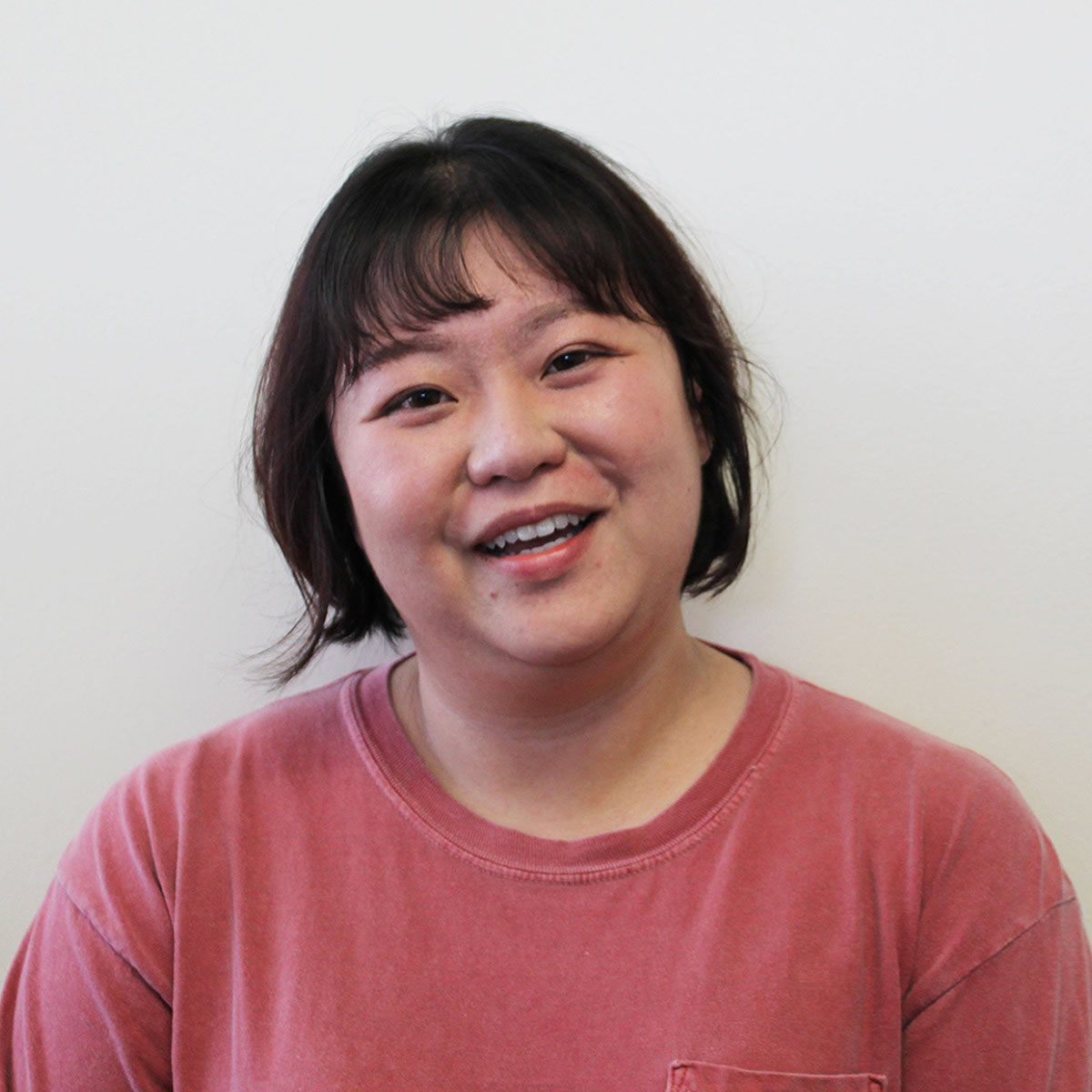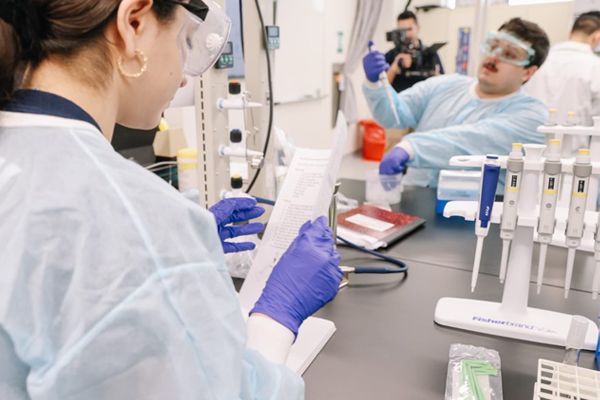Posted on January 21, 2020 by College of Sciences

Yue Chen, Cell and Molecular Biology Ph.D. Candidate
By Lauren Moriarty
Yue Chen was a curious kid. She asked her parents many questions while growing up in Hangzhou, China. (Where is my tail? Why do I have two eyes but I only see one thing? Why is the moon called the moon?) And then in high school, she found herself dissecting a frog. "Everyone else [was] afraid but I wasn't," Yue remembers. "Our teacher was trying to explain how the blood gets pumped through your system in the heart. I think it's so cool that we can do that. I think the cool thing is, how did people find out this process?"
Yue majored in bioengineering at Zhejiang Gongshang University, where she helped with E. coli cloning in an undergrad lab. This piqued her interest in biology and Yue realized she craved a higher education. Her professor suggested going to Germany or the United States to study biology. "I don't speak German, so I picked America," she laughs. After earning her M.S. in Biology at UTSA, she became a lecturer in a cell biology lab on campus. Still, Yue wasn't done asking questions. "During teaching time I realized I didn't know how to answer [the students], or when I asked questions to myself I wanted to further investigate," Yue says. "My supervisor at the time suggested, if you want to answer your own question you could consider getting a Ph.D."
Now in her fourth year of doctoral studies, Yue is looking forward to a post-doctoral position at Tufts University where she will study tuberculosis. Infectious disease research, and the many unknowns it seeks to solve, is the perfect fit for this particularly inquisitive scientist. Yue's current Lyme disease research focuses on cell wall accessory proteins. "We found out if you make a mutant strain, which lacks this protein, it makes the bacteria very sensitive to environmental stress and they have a very hard time to survive in the animal model," she explains. "The function of this protein is mainly to support the structure of the cell wall. If we find something to target this protein, that will make the bacteria very fragile and maybe that will be a way to treat Lyme disease."

Explore the MMI Department!
Uniting an engaged community of researchers, educators, and students while preparing students for professional careers in microbiology and immunology, medical and public health service fields, education, research, and industry.
Recent MMI Spotlights
View More Spotlights



